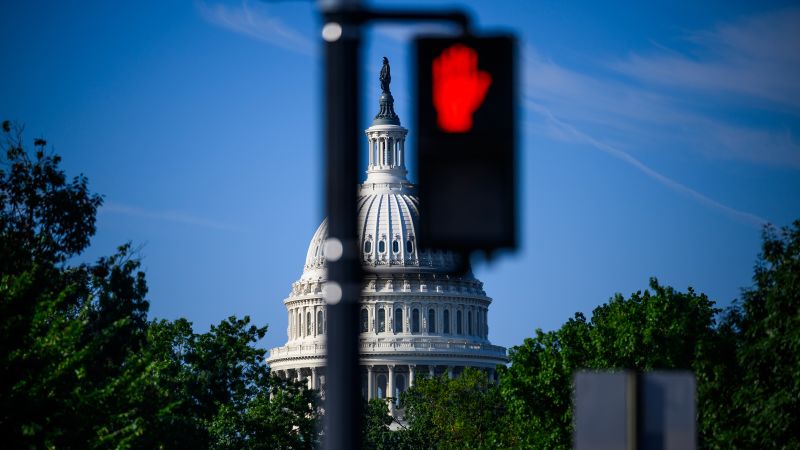In the face of potential Democratic filibusters, Senate Republicans are exploring various strategies to expedite the confirmation of President Donald Trump’s nominees. Amid pressure from Trump to maximize the Senate’s productivity during the August recess, GOP members convened for a discussion post their Tuesday lunch regarding feasible steps they could take.
Currently, no definitive decisions have been made; however, the urgency to process nominees has prompted suggestions for alternative actions. One point of contention is the push for recess appointments. Some Republican senators have expressed interest in utilizing this method, but they also acknowledge significant challenges. The House of Representatives had already adjourned for a five-week recess without the necessary provisions in place to facilitate swift action. Any attempt to enact recess appointments would necessitate the House’s return to establish a concurrent resolution with the Senate.
As they navigate this complex political landscape, Republican senators have also highlighted potential alternatives. One key idea circulating within discussions is to streamline the nomination process or consolidate multiple nominees for quicker approval. This strategy seems vital given the increasing pressure on the Senate to maintain operational governance effectively.
Senator Mike Rounds of South Dakota emphasized the necessity of moving forward with confirmations, cautioning against the potential ramifications of an extended stalemate. He reiterated the sentiment shared by many within the Republican caucus—obstruction of the president’s nominees, particularly those that have garnered near-unanimous consent in committee, jeopardizes the functionality of government. Rounds articulated the delicate balance they aim to maintain, striving to avoid invoking the nuclear option—a controversial maneuver that would alter the Senate’s filibuster rules.
In light of ongoing discussions about procedural strategies, Rounds stated unequivocally that the conversation about alternative options was very much alive. Other GOP senators, including John Kennedy from Louisiana and Eric Schmitt from Missouri, have been particularly vocal about their support for recess appointments, predicting that without a shift in position from Senate Minority Leader Chuck Schumer, such appointments may become inevitable. Schmitt notably remarked that the unprecedented nature of all nominees being filibustered by Democrats could provoke a forceful Republican response.
Senator Kennedy, indicating a sense of urgency, suggested that the Senate might remain in session through the weekend as they work to facilitate the confirmation of these essential nominees. This was echoed by his belief that senators need to remain engaged and available to their constituents rather than withdrawing for recess, especially with pressing topics such as the Jeffrey Epstein files dominating discussions within their communities.
Highlighting the disconnect, Kennedy voiced frustration over the delayed processes initiated by Democrats and their reluctance to expedite confirmations for the less controversial nominees through unanimous consent—a faster approach benefiting both parties when in the majority. The context of these discussions is essential, as Republicans previously employed similar tactical maneuvers when managing nominations from Democratic administrations, which carries weight in the ongoing debate surrounding procedural fairness.
Ultimately, as the Senate continues to grapple with the implications of these negotiations, Kennedy summarized the sentiments of his colleagues, underscoring a desire to return home and interact with their constituents concerning pressing national concerns, including critical legislative issues and broader societal controversies. The path forward remains uncertain but laden with tactical considerations as Republican senators strategize ways to dissolve the current impasse surrounding Trump’s nominees.
In conclusion, as reported by CNN’s Aileen Graef, the tension surrounding the confirmation process for President Trump’s nominees illustrates a critical moment in Senate operations, highlighting not only the political maneuvering of both parties but also the need for collaboration to ensure efficient governance.











